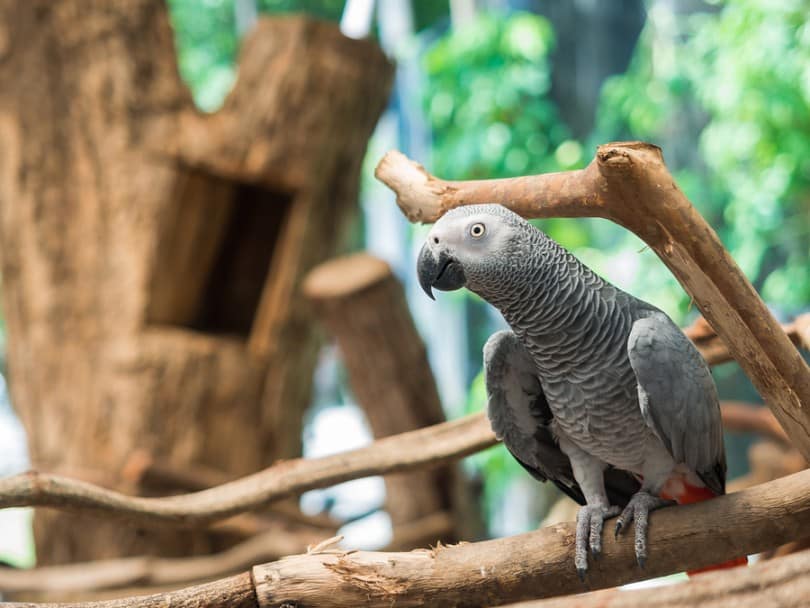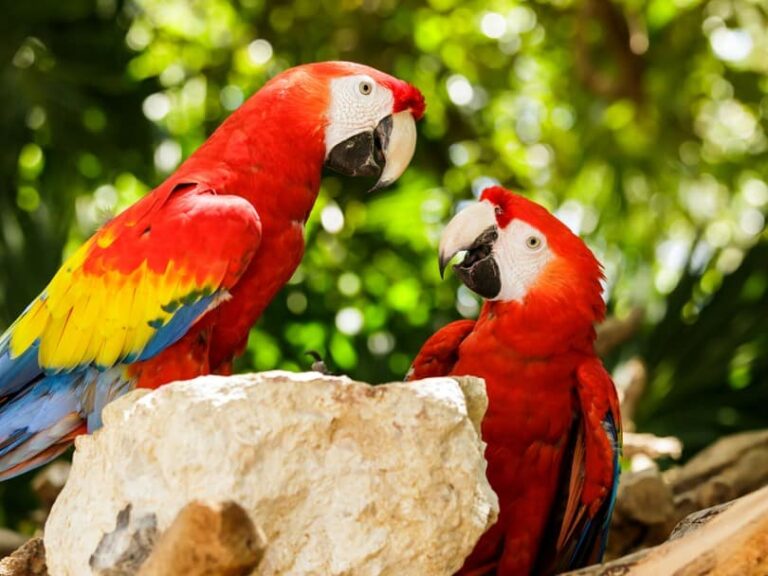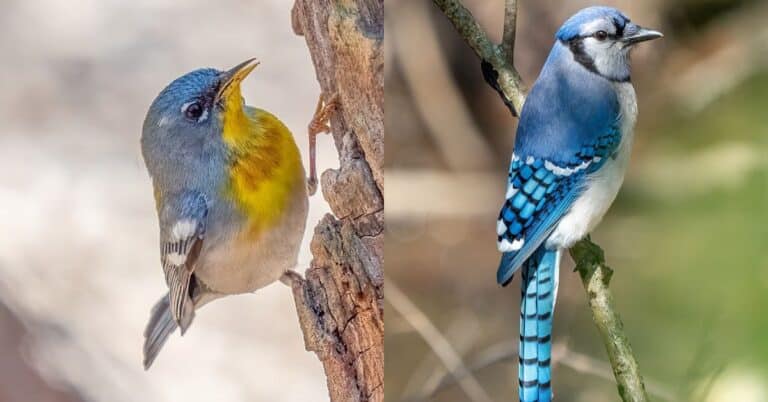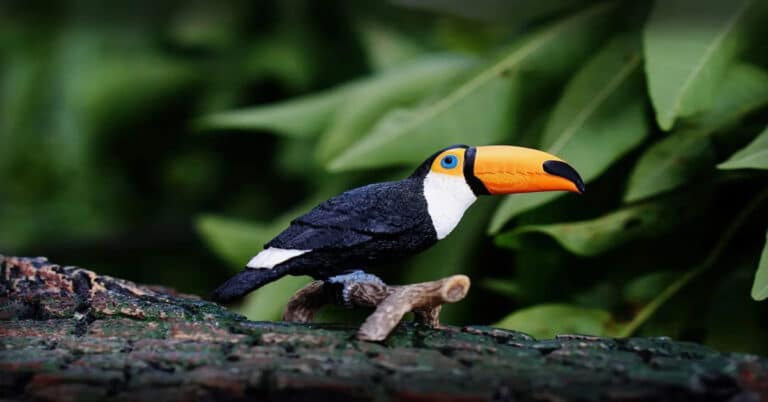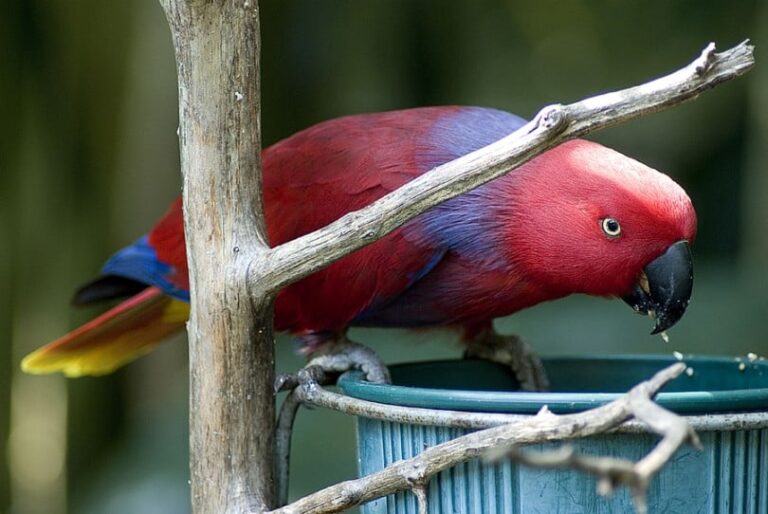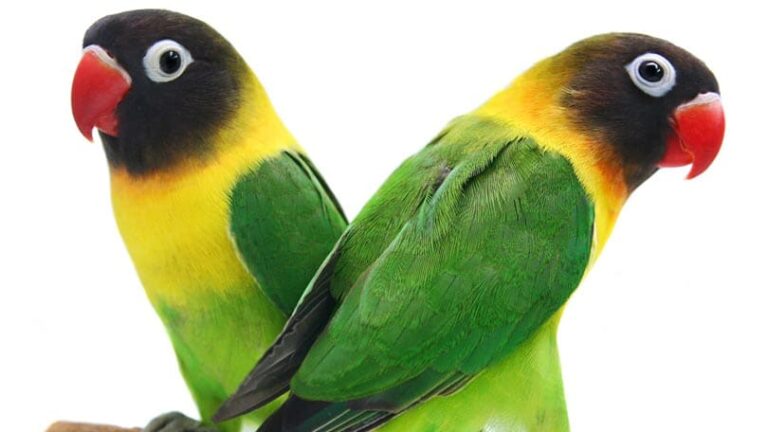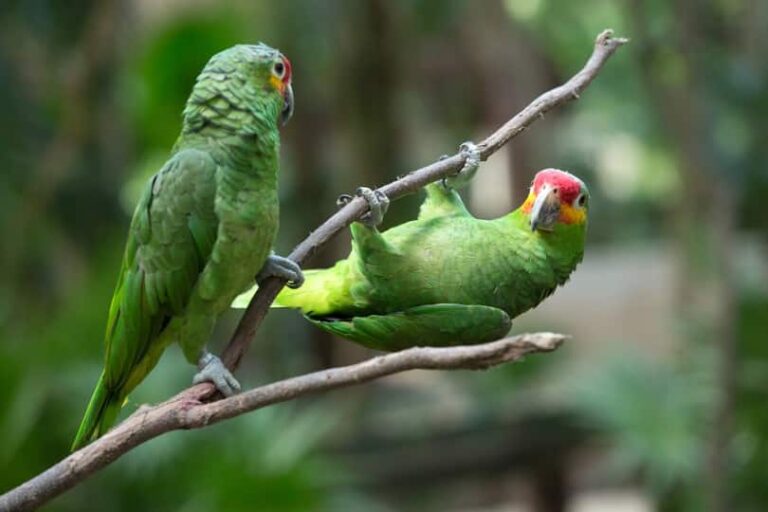African Gray Parrots
The African Gray Parrots, more commonly known as Congo African Gray Parrots are a vulnerable type of species in the parrot group that belongs to the Psittacidae family. This parrot is a lovable and social creature, preferred by the entire pet lovers. It is endemic to the central and western rainforests in Africa.
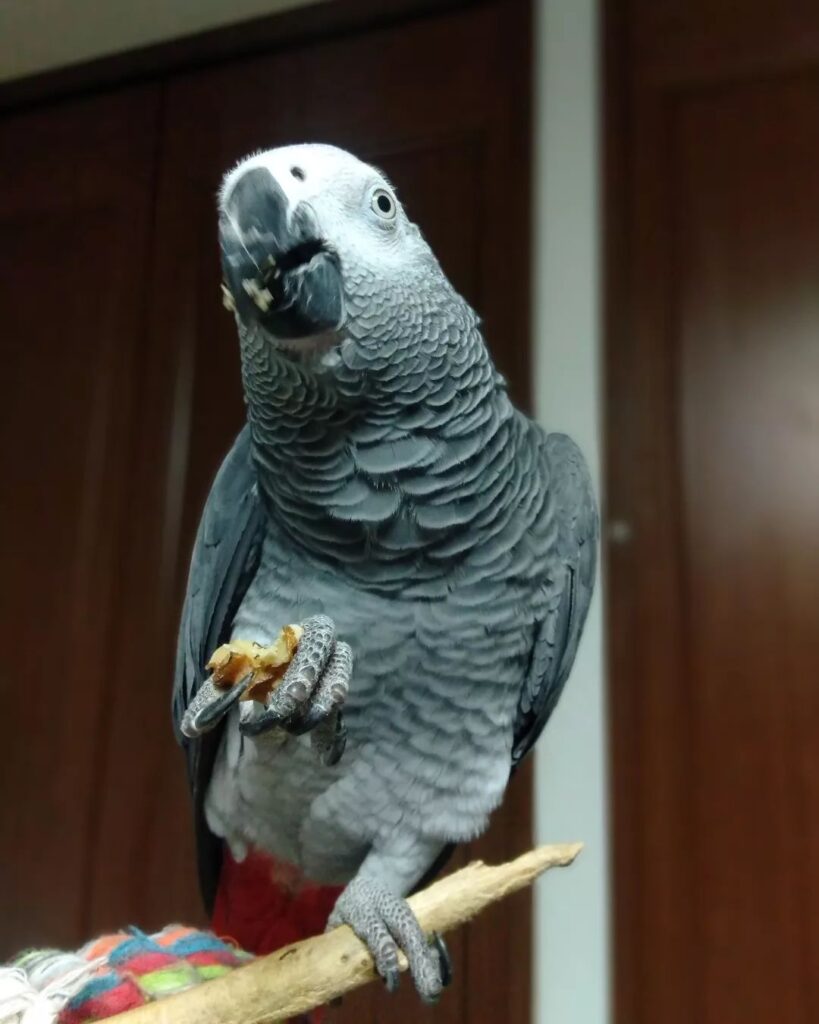
Description
This Gray Parrot has a medium-sized profile. It has a black bill and predominantly Gray body color, but the undertail coverts and the tail are usually red or maroon in color. The maximum wingspan of this bird is around 46 to 52cm and it weighs around 400g along with a length of 33 cm. The male and female birds have similar looks. The adult birds have grayish-yellow colored eyes, whereas the juveniles have a dark Gray shade. The remaining profile of an adult and juvenile is almost similar. This species of birds are highly intelligent and have a special ability to mimic human sounds. They are considered to perform some tasks with an IQ similar to a 4to 6 years child. Hence it is a good companion parrot for humans.
History
Since the biblical time, the African Gray Parrot is popular as a pet or a companion bird. During the 18th century, an author known as, Dr.W.T Greene wrote many volumes on different species of birds, in which the name of the African Gray Parrot was included. That book covered the topic related to the features of these birds and about how to treat with them. According to him, this bird has been present since the Hebrews time, which is about 4000 years ago. It was also named as “Jaco” by the early Portuguese voyagers, who took along this bird with them during the long voyages. Earlier kings and monarchs were very fond of these African Parrots due to its talking ability and attractiveness. In the 15th century, the king of England, Henry VII had an African Gray Parrot as a pet in the Hampton court.
Habitat
The African Gray Parrots are mostly found in the different regions of Africa; hence it is named after the Africa region. It is native to savannas, woodlands, coastal mangroves and in the forest clearing edges in the western and central parts of Africa. The other parts where these birds are commonly found are Tanzania, southeaster part of Ivory Coast and Kenya. They can be seen up to an altitude of 2200m in the African regions.
Reproduction
The African Gray Parrots are monogamous in behavior. During the breeding period, these birds separate from their flock in pairs, and search for a suitable tree to make nests. Usually they make nests in a hole or cavity in the tree. The female bird is the one who creates cavity, and it is believed that the male bird stands guard. The female lays around 3 to 5 eggs and incubates for 30 days. During the incubation period, the male bird feeds the female parrot. After 12 weeks, the young birds leave the nest and fly independently.
Behavior
The African Gay Parrots are very wise and charming natured birds. It is a perfect choice as a pet bird. The talking ability and the beauty are the sole reasons for its popularity. They are mingling type, but are a bit reserved towards the strangers and new objects. If they are not provided with a comfortable ambience, they may become fearful and introvert. Then, their behavior becomes unpredictable. Hence, from the youngest age, they must be breezed in different conditions and by different people, so that they get accustomed to any situations.
How To Grow At Home
Cage
African Gray Parrots are a mingling type of birds, and they always require care and attention. The cage is a place where they feel very homely and safe, as we humans do when we are at home. Hence, while choosing a cage for your pet African Gray Parrot, make sure that it is spacious enough for its housing needs. The suitable size of the cage for these birds is 2 feet deep, 4 feet high and 3 feet wide. Such spacious cage will allow the bird to move around freely. The cage must have a tray and a playpen top. This playpen area should have enough toys for your pet to play. A cage with sidebars in a horizontal position will be preferable for these birds, as it will give them a good exercise by climbing up and down. The cage should be preferably square or rectangular shaped, as the round shaped cages have converging bars, which trap the bird’s feet or wings. Also, the square shaped cages provide more space for your pet. Make sure the cage bars are strong enough to be bent by the birds, and there should be no harsh or sharp edges that will wound your pet. The cage materials of an African Gray Parrot should be selected very carefully. Material like zinc is toxic to the birds; hence never prefer a zinc cage. The other materials like brass, chrome and steel are good choices. Cages made with powder coat finish are recommended, as it has passed the African Gray Parrot’s beak test. Cages with perches, steel or ceramic vessels and removable trays must be selected for easier cleaning and bird’s comfort. Never leave much space between the bars or close any other openings in the cage from where the birds can put their heads or feet out and get choked. The cage should be cleaned weekly with detergents and disinfectants.
Food
The health and lifespan depend mainly on the nutrients that a bird receives in its lifetime. Hence, to see your bird living a healthy and long life, provide a good nutritional food. In the wild, the African Gray Parrots prefer seeds, flower buds, leafy matter and insects. But as a pet, it should be given a good pellet diet that is organically processed. Avoid those containing artificial coloring and additives. An addition to the pallet diet, you can also give fresh vegetables and fruits. Vegetables like carrots, peas, sweet potatoes, collared greens, kale, broccoli, green bean, cucumbers are good for these birds. The fruits recommended for these birds are melons, apples, berries, oranges, grapes, kiwi and skin removed mangoes and papayas. Water is also an important aspect of the diet of an African Gray Parrot. Pure and fresh water should be given in a clean bowl on a daily basis.
Care
The African Gray Parrots are attention seekers; hence they should not be left alone in a room. Their cage should be placed, where they can always see human counterparts. Keep away from excess heat and drought. Provide enough toys and perches to keep them busy. Keep the cage and the food vessels clean by using detergents or disinfectants. Some foods like avocado, alcohol, chocolate, uncooked egg and meat and spoiled food should not be provided for these birds, as they may kill the birds.

Having discovered a fondness for insects while pursuing her degree in Biology, Randi Jones was quite bugged to know that people usually dismissed these little creatures as “creepy-crawlies”.

